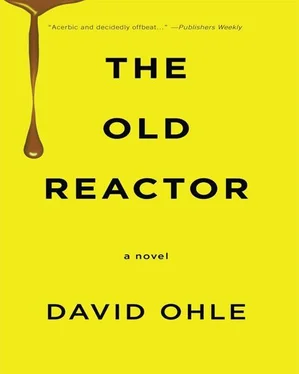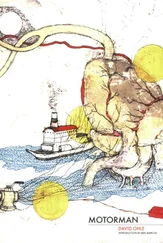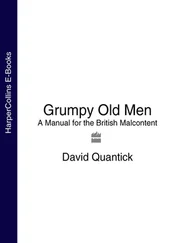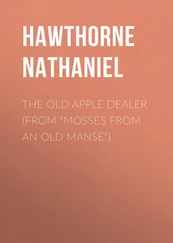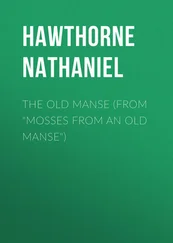David Ohle - The Old Reactor
Здесь есть возможность читать онлайн «David Ohle - The Old Reactor» весь текст электронной книги совершенно бесплатно (целиком полную версию без сокращений). В некоторых случаях можно слушать аудио, скачать через торрент в формате fb2 и присутствует краткое содержание. Год выпуска: 2014, Издательство: Dzanc Books, Жанр: Современная проза, на английском языке. Описание произведения, (предисловие) а так же отзывы посетителей доступны на портале библиотеки ЛибКат.
- Название:The Old Reactor
- Автор:
- Издательство:Dzanc Books
- Жанр:
- Год:2014
- ISBN:нет данных
- Рейтинг книги:4 / 5. Голосов: 1
-
Избранное:Добавить в избранное
- Отзывы:
-
Ваша оценка:
- 80
- 1
- 2
- 3
- 4
- 5
The Old Reactor: краткое содержание, описание и аннотация
Предлагаем к чтению аннотацию, описание, краткое содержание или предисловие (зависит от того, что написал сам автор книги «The Old Reactor»). Если вы не нашли необходимую информацию о книге — напишите в комментариях, мы постараемся отыскать её.
The Old Reactor — читать онлайн бесплатно полную книгу (весь текст) целиком
Ниже представлен текст книги, разбитый по страницам. Система сохранения места последней прочитанной страницы, позволяет с удобством читать онлайн бесплатно книгу «The Old Reactor», без необходимости каждый раз заново искать на чём Вы остановились. Поставьте закладку, и сможете в любой момент перейти на страницу, на которой закончили чтение.
Интервал:
Закладка:
David Ohle
The Old Reactor
When we have communicated nicely within ourselves, the stool reflects a simple reasonable operation (cowflop is, for example, modest in its odor) but where we have failed…the odors and shapes are tortured, corrupt, rich, fascinating (that is attractive and repulsive at the same time) theatrical, even tragic.”
— NORMAN MAILER, “THE METAPHYSICS OF THE BELLY”In those days Moldenke stayed in the city of Bunkerville and was so full of passion for the labor movement his nose bled when he spoke of it. He could be seen day after day going up and down Esplanade Avenue in the company of a few like-minded friends, passing out the pamphlet, “Fair Play for the Working Stiff.” He knew, though, that his bowel could make sudden demands. Wherever he picketed or passed out leaflets, the location of the nearest public toilet was always something to keep in mind. The condition had come upon him in his teens, in school at St. Cuthbert’s. Doctors told him it was a stubborn inflammation that could last the rest of his life. They had given it a name he had long ago forgotten.
It was also a time when his dear aunt lay dying of a persistent and growing abdominal teratoma. She lay tucked into a narrow room at the Broad Street Charnel House, living out her last days. It was an awful place and Moldenke hated going there, yet he did so religiously every Sunday.
His aunt’s surgeon, the well-known scientist Edgar Zanzetti, could do no more. It was now up to her to settle into dying. The growth that protruded from her abdomen looked to Moldenke like an apple under a tablecloth. Weakened muscles in her drooping lids required that she wear small lid-lifting appliances made of gold plated rods and rubber knobs. She was a plaster mold of her former self who’d come to look like an illustration in a medical text.
When he went to see her on those anxious Sunday afternoons, Moldenke’s stomach burned and his hands shook. He’d been living in her house on Esplanade for nine months, keeping an eye on things while she underwent surgery after surgery. He paid no rent, nor had he done well keeping an eye on things. The house had been broken into many times. Antique silver services, jewelry, rare first editions, musical instruments, and a beaver coat had been stolen.. The thieves came in almost nightly while Moldenke slept upstairs with cotton in his ears to shut out the noise of the streetcars running on Esplanade.
He paid no particular interest to maintenance or sanitation. The rusting gutters sagged with a load of leaves and twigs. Windows had been left open during rain storms, leaving soaked carpets in the parlor and buckled tiles in the kitchen. Rarely had the dishes been washed, the vacuum cleaner had never been taken from its closet under the stairs, there were generations of wharf rats living under the kitchen sink, and a frilly gray fungus thrived on curtains and walls.
As soon as Moldenke arrived at the Charnel that Sunday, his aunt began to needle him, a froth forming at the corner of her lips. “How many times did your mother read you the fable of the grasshopper and the ant?”
“Not that again.”
The little nook where she was kept was so narrow that Moldenke could not stand at the side of her cot but had to remain in the doorway a few feet away. He lit a cork-tipped Julep, inhaled, then let the smoke out as he said, “You conveniently forget the tortoise and the hare. She read that, too. I’m off to a slow start, but I could have a strong finish. That’s the lesson I took.”
“Please don’t smoke those things in here. They smell like burning hair.”
“All right.” He smashed the Julep out on the bottom of his shoe and slid the leftover stub into his shirt pocket for later.
“Worse times are ahead,” his aunt warned. “You know that, don’t you? They liberated Altobello. Bunkerville will be next.”
“I’m as ready as anyone,” he said. “For anything.”
“Have you found work? Idle hands are the devil’s workshop. You know that.”
“My friends and I will be picketing Eternity Meadows later. I don’t have time to look for a job today. Do you have any idea what they pay their grave diggers?”
“You’ll get into trouble. They’ll send you to Altobello on a freighter.”
“It hardly matters. I wouldn’t mind going there. Some pure freedom might be good for a while. Scary, but interesting.”
“What about the jellyheads? They’ve been infesting the place. It’s been in the papers.”
Moldenke had seen jellies walking the streets of Bunkerville, too, but didn’t want to frighten his aunt with the real news. Instead, he opened a waxed paper envelope. “I brought you a bear claw. You love them.”
“I’m too sick to eat. You bring them for yourself.”
“Yes, I know.” He ate a bite of the sugary confection, rolling balls of it on his tongue before swallowing.
“Still taking care of my house on Esplanade, or have you found a place of your own?”
“If I weren’t living there, who would? The house is a shambles. You couldn’t rent it to jellyheads. I’m doing you a favor by staying in it.”
His aunt made a strenuous but successful effort to turn onto her side and say, “You’ll find a nice pretty girl someday. You can live with her in my house.”
“Thank you, Aunt.”
With another thrust she attempted to turn onto her back. Moldenke made a move toward helping but could reach only her feet. If he hadn’t been afraid of breaking her ankles he might have tried to twist them to help her roll. She managed to turn with an exhausting struggle. In the process, her lid lifters fell to the floor and her eyelids drooped. It took her a few minutes to catch her breath. “Can you get my lifters for me?”
The distance between the wall and the cot was only a few inches. Moldenke couldn’t reach the lifters without climbing into the cot with his aunt. “I can’t get to them. I’m sorry.”
She pinched her nose. “You smell. That bowel of yours isn’t getting any better, is it? You’ve shit your pants, haven’t you?”
Moldenke looked upward, as if there were something eye-catching above him. “They haven’t been washed for a while.”
“Dear nephew, is the ceiling easier to look than I am?”
“That lump is just something I’d rather not see. Zanzetti told me those kinds of tumors have hair and teeth and small bones in them. And I don’t want to talk about my angry bowel, either. I have to go.”
“I may die tonight, or tomorrow, so there is something I’ve kept from you.”
“Hurry, tell me again.”
“When your father woke up that morning your mother was standing naked at the foot of the bed in a puddle of water and blood saying, ‘He’s here too soon!’ Your father spread bath towels on the bedroom floor. The labor was short. A few contractions and there you were. You came to them the way the Sunday paper is thrown on the porch. They were expecting it, but were startled when it dropped.”
“I’ve heard this a hundred times.”
“Such a nice boy. Give you a few pins, a cigar box, a handful of mothballs, and there you’d go, collecting earwigs and spittle bugs and having the time of your life.”
“I really have to leave. My friends and I are picketing.”
“You made molds of your fingers with paraffin, filled them with plaster and lined the dresser top with these little monuments to yourself. You even tried to make a mold of your little Johnny Brown, but the hot paraffin burned you.”
“How many times have I heard that one? I’m going.”
“It was cute the way you couldn’t make up your mind about anything.”
“Please stop.”
“The simplest questions, you never answered them…. What did you have for lunch at school? You’d hem, you’d haw, you’d look down at your shoes as if they were golden slippers.”
Читать дальшеИнтервал:
Закладка:
Похожие книги на «The Old Reactor»
Представляем Вашему вниманию похожие книги на «The Old Reactor» списком для выбора. Мы отобрали схожую по названию и смыслу литературу в надежде предоставить читателям больше вариантов отыскать новые, интересные, ещё непрочитанные произведения.
Обсуждение, отзывы о книге «The Old Reactor» и просто собственные мнения читателей. Оставьте ваши комментарии, напишите, что Вы думаете о произведении, его смысле или главных героях. Укажите что конкретно понравилось, а что нет, и почему Вы так считаете.
